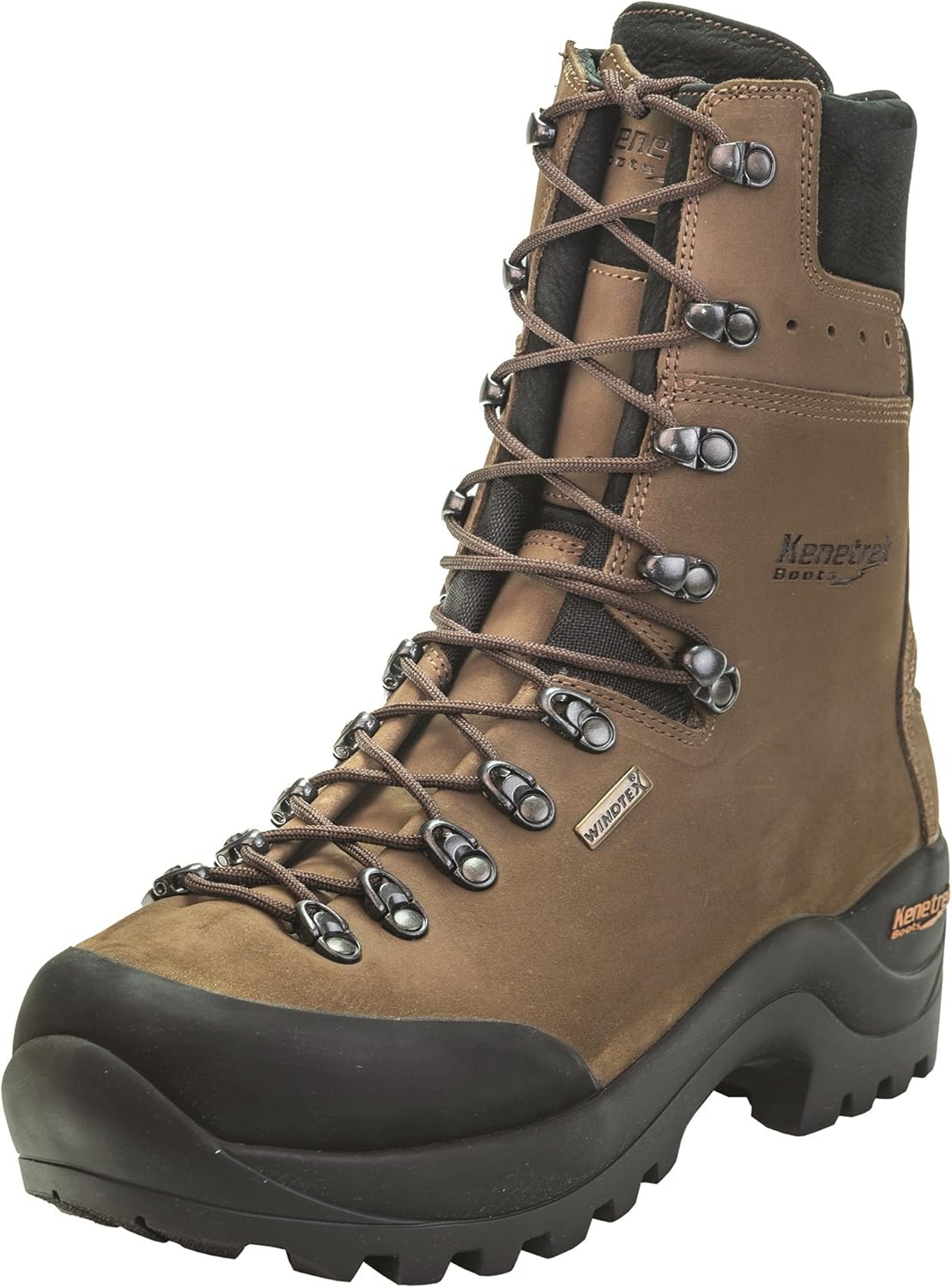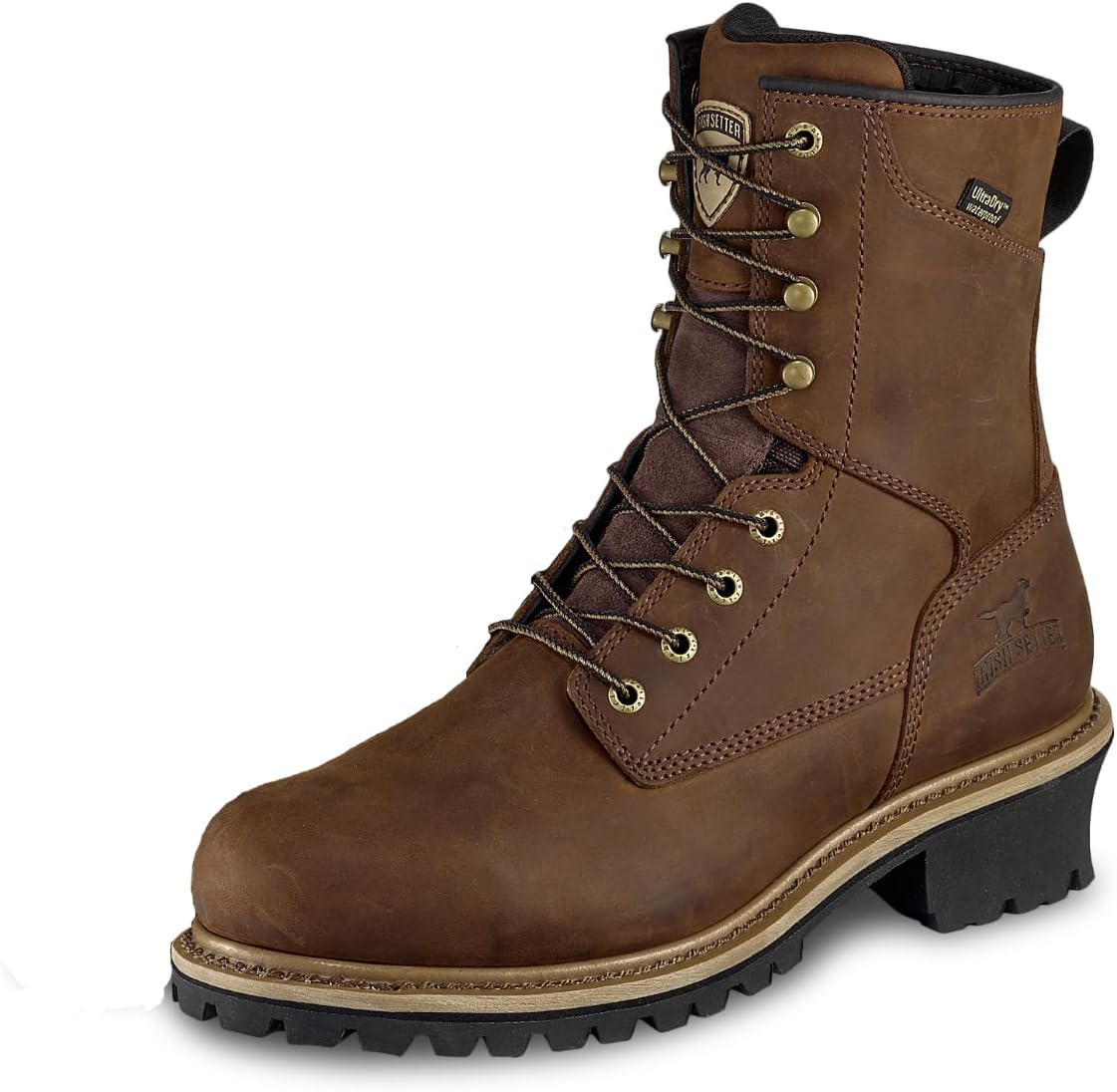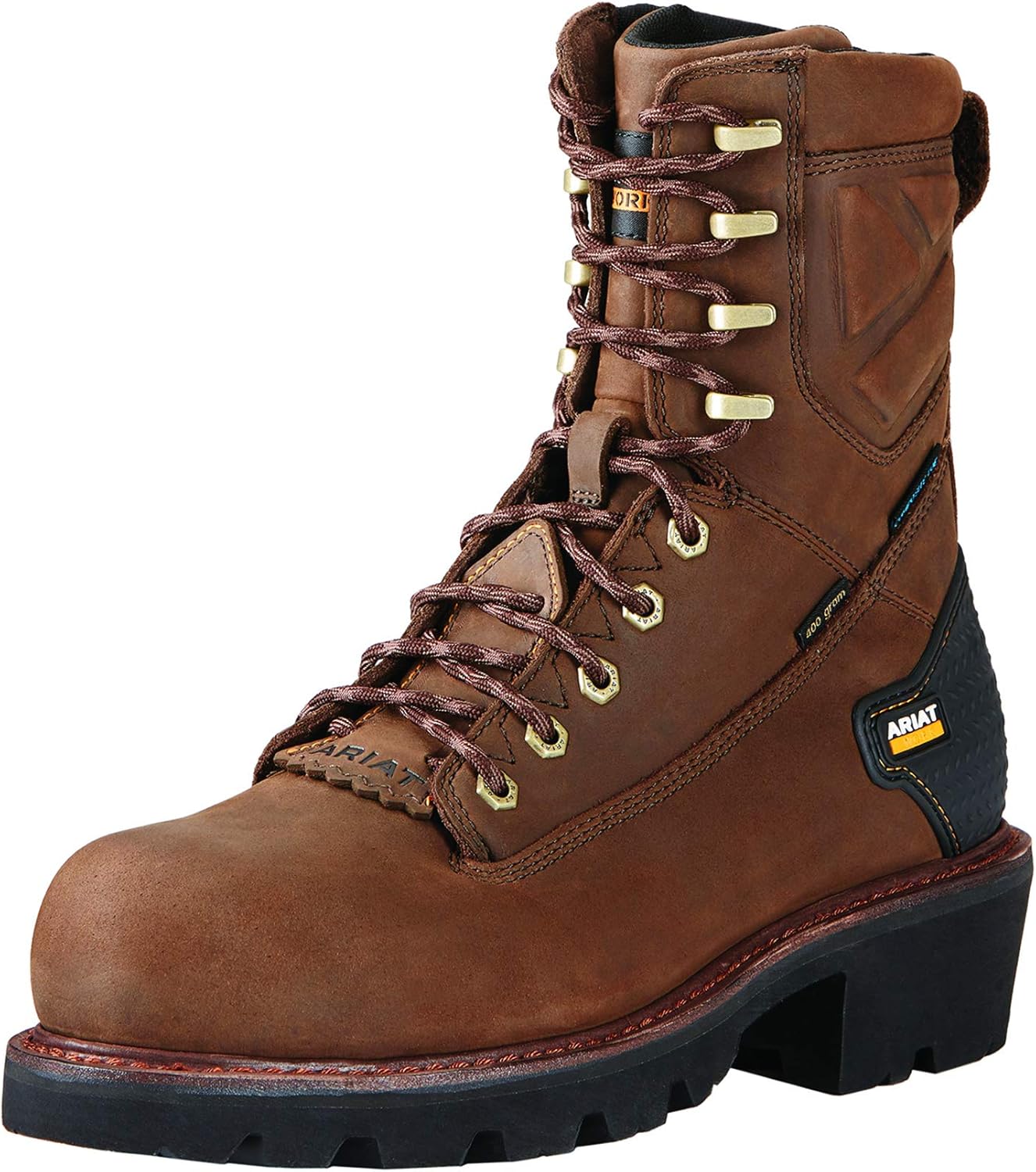Here’s an overview of the Best Lineman Work that we’ll explore today:
Lineman work boots are a critical tool in high-risk trades where climbing, ladder work, and long hours on uneven surfaces are common. The right pair protects your toes, supports your ankles, and keeps you moving through wet conditions, grime, and long shifts without sacrificing comfort. In this review, I test and compare five representative models across a range of price points, materials, and toe configurations to help you balance protection, comfort, and value.
Methodology: I evaluated each boot on core criteria that matter on the job site—toe protection (steel vs composite), waterproofing, insulation (if any), weight and balance, midsole support, outsole traction, break-in period, and overall day-long comfort. I also considered fit consistency, durability indicators (stitching, leather quality, and outsole wear), and how well the boot handles wet environments or rugged terrains. The selection covers budget-friendly options, mid-range all-rounders, and premium builds from established brands.
Brands covered in this comparison include Georgia Boot, Irish Setter, Kenetrek, Wolverine, and ARIAT, representing a spread of classic American work boot makers and modern comfort-focused players.
1. Kenetrek Lineman Extreme Non-insulated Steel Toe Boot
- Brand: Kenetrek
- Manufacturer: Kenetrek
Overview: The Kenetrek Lineman Extreme is a purpose-built, non-insulated steel-toe boot designed for demanding lineman work. It emphasizes rugged durability with a steel toe and a high-cut upper that offers substantial ankle support. The “Lineman Extreme” designation signals a focus on protection and stability for vertical work in harsh environments, and the non-insulated construction targets those who work in varied climates where cold is not a consistent factor.
Performance and user experience: In practice, this boot delivers solid protection with a reinforced toe and a robust upper that’s built to resist abrasion and delamination under tough conditions. Expect a firmer ride and a break-in period due to the sturdy construction, but the payoff is long-term durability and reliable protection on ladders, beams, and rough terrain. The lack of insulation makes it a better option for warmer climates or seasons, but you’ll want to account for temperature when choosing a pair for winter work. The fit tends to be true-to-size for many users, though the weight can be noticeable on long shifts.
Pros
- Steel toe provides maximum impact protection for high-risk tasks
- Rugged, durable upper construction built for harsh environments
- High ankle support aids stability on ladders and uneven surfaces
- Non-insulated design favors warmer conditions and breathability
- Expected long service life on demanding jobs
Cons
- Heavier than composite-toe counterparts, may slow footwork over long days
- No insulation, not ideal for consistently cold environments
- Break-in period can be longer due to sturdy materials
2. Irish Setter
- Brand: Irish Setter
- Manufacturer: Irish Setter
Overview: The Irish Setter Mesabi is an 8-inch, waterproof logger boot with a steel safety toe designed for wet, heavy-duty environments. Its tall shaft provides substantial calf and ankle protection, and the steel toe offers robust impact resistance for demanding outdoor tasks like timber work and roadside maintenance. The boot sits in the mid-range price tier, delivering a strong value proposition for workers who need reliable waterproofing without a premium price tag.
Performance and user experience: In use, the Mesabi excels in wet conditions thanks to its waterproof construction and tall height, which keep water and mud out during long shifts in streams, swampy ground, or rain-soaked sites. The steel toe remains a constant safety feature, though the overall weight is heavier than non-steel or composite models. The boot’s fit tends to be accommodating for varying foot shapes, but users should confirm sizing if you’re between sizes. Overall, a solid workhorse for those who prioritize water protection and toe safety at a modest price.
Pros
- 8″ shaft offers excellent ankle protection and moisture resistance
- Waterproof construction keeps feet dry in wet environments
- Steel toe delivers strong impact protection
- Good value for the price point
- Durable leather and rugged build suited for logging work
Cons
- Heavier than mid-cut or composite-toe boots
- Not insulated, so colder climates may require extra socks
- May run slightly stiff out of the box
3. Wolverine Overpass 6″ Mid Composite Toe Waterproof Work Boot
- Brand: Wolverine
- Manufacturer: Wolverine
Overview: The Wolverine Overpass is a 6-inch composite-toe, waterproof work boot designed for everyday durability with a focus on flexibility and lighter weight. Its ContourWelt technology adds flexibility and comfort, while the waterproof leather and protective toe help you stay dry and secure on mixed terrain and job sites. This model sits at a compelling budget level while delivering features that make it a practical all-rounder for many lineman tasks.
Performance and user experience: The composite toe reduces overall boot weight, which translates to less fatigue during long climbs and extended wear. The outsole is a lightweight rubber lug designed for shock absorption and grip on wet surfaces, though it may not be as long-wearing as heavier-duty, commercial-grade outsoles. Expect comfortable entry and break-in, with a boot that excels in everyday, non-extreme conditions and lighter-duty frontline lineman work. For those prioritizing value and overall comfort, this is a standout option.
Pros
- Lightweight composite toe reduces fatigue
- Waterproof leather keeps feet dry in wet conditions
- ContourWelt provides added comfort and flexibility
- Affordable price point with solid daily wear comfort
- Good shock absorption and traction for general use
Cons
- Composite toe offers less absolute protection than steel in extreme impact scenarios
- Not insulated, may be less warm in cold environments
- May show more wear in aggressive, heavy-use environments over time
4. Georgia Boot AMP LT Logger Low Heel Waterproof Work Boot
- Brand: Georgia Boot
- Manufacturer: Georgia Boot
Overview: The Georgia Boot AMP LT Logger is a low-heel, waterproof leather boot designed for wet, lumber-related workloads. With full-grain SPR leather and a dedicated Georgia waterproof system, this boot emphasizes weather resistance and reliability in muddy, rain-soaked environments typical of logging and outdoor site work. The low heel improves stability on uneven terrain while keeping a traditional logger silhouette.
Performance and user experience: The EVA midsole contributes to light-to-moderate comfort under long shifts, and the boot’s waterproofing keeps internal moisture down across a workday spent in rain, streams, or standing water. The 1.5-inch heel helps with climbing and heel-toe balance, but the boot may feel stiffer initially due to durable leather and a robust build. Overall, a solid choice for wet, rugged conditions where rain protection and durability matter more than heavyweight insulation.
Pros
- Excellent waterproof system for wet conditions
- Low heel aids climbing and stability on uneven ground
- Durable full-grain SPR leather that withstands abrasion
- EVA midsole adds light cushioning
- Solid value for a rugged logger boot
Cons
- Not insulated, so warmth is limited in cold conditions
- Heavier construction could affect all-day comfort for some users
5. Ariat Men’s Powerline 8″ Waterproof 400g Composite Toe Work Boot
- Brand: ARIAT
- Manufacturer: ARIAT
Overview: The Ariat Powerline is a premium-leaning 8-inch waterproof boot with a 400g insulation package and a composite toe. It combines warmth with a lighter toe cap for enhanced daily wear and long shifts in winter or damp environments. This model targets workers who need reliable warmth without the bulk and weight of steel toe boots, while still requiring dependable waterproofing and a strong overall build.
Performance and user experience: The 400g insulation delivers notable warmth for cold days, making it a comfortable choice for early mornings or high-rain seasons. The composite toe helps reduce weight and allow easier climbing and prolonged wear. The boot’s waterproofing is well-suited for wet sites, and Ariat’s comfort technologies typically translate to better all-day support. However, the insulation can feel hot in milder conditions, so consider the climate where you’ll work most of the year.
Pros
- 400g insulation provides solid warmth for cold environments
- Composite toe reduces weight for easier movement
- 8″ height offers strong ankle protection and support
- Effective waterproofing for wet work sites
- Overall comfort and brand reputation for field performance
Cons
- Insulation can be too warm in mild or hot conditions
- Higher price point compared to budget options
Frequently Asked Questions
We’ve compiled answers to the most common questions about lineman works to help you make an informed decision.
Conclusion
Final thoughts: The best overall choice depends on your work environment and priorities.
For maximum protection and durability in harsh, high-risk settings, the Kenetrek Lineman Extreme is unmatched in build quality and protection, though at a premium price. If you need a reliable waterproof option with strong value, the Irish Setter Mesabi and Georgia AMP LT provide robust protection for wet, rugged sites.
For daily wear across mixed conditions with a focus on weight and comfort, the Wolverine Overpass offers exceptional value, while the Ariat Powerline delivers warmth and insulation without sacrificing mobility. Rank your needs—weight, warmth, waterproofing, toe protection, and budget—and pick the model that aligns with your primary use case..




